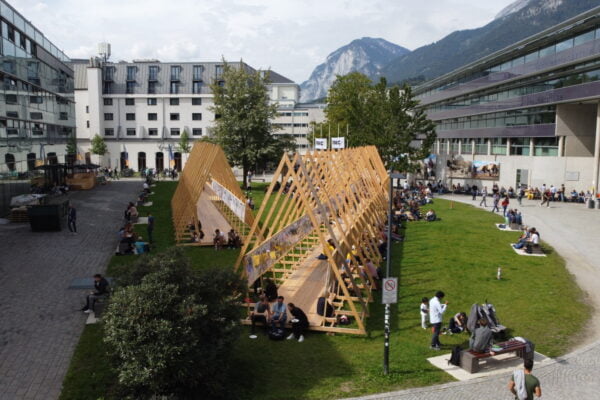
NAME:
SOWI - Garden
BUILDING:
SOWI
FLOOR:
0
TYPE:
Garden
CAPACITY:
2000
ACCESS:
Public Access
EQUIPMENT:
---
Mountain areas are particularly vulnerable to the effects of climate change, with climate and societal shifts highlighting key vulnerabilities and challenging the development model of mountain regions, specifically around mountain resort towns. PITON, a cross-border Pyrenean project within the Interreg POCTEFA programme framework, explores future adaptation pathways and potential transition models for territories connected to their resorts by leveraging social and technological innovation. Social innovation fosters large-scale territorial transition by engaging all local stakeholders, beyond ski resort and broader tourism operators. Technological innovation involves the use of digital tools for data collection and analysis, aiming to improve understanding of resort-territory dynamics and assess impacts on natural resources and socioeconomic dynamics through a set of indicators.
The PITON methodology is based on three stages. The first stage, mainly based on focus groups and participatory methods, involves characterizing four case studies at the system level in collaboration with key stakeholders (i. e. the compromised ski area and the extended community region influenced by it). The second stage involves a design fiction method, engaging stakeholders in the creation of various future scenarios. Finally, the third stage is based on the co-creation of strategic prospective methods used to discuss and foresee the implications of the different future scenarios. Throughout this process, we co-develop and support the design of adaptation pathways and strategies to support the sustainable development of mountain regions, tourism destinations and local communities.
The present work details the methodologies applied in PITON, exploring stakeholder engagement strategies and digital tools. Early-stage results from pilot territories provide insights into emerging transition strategies for mountain regions.
